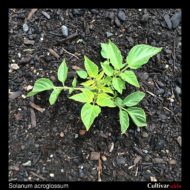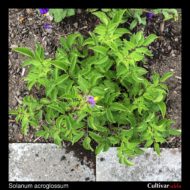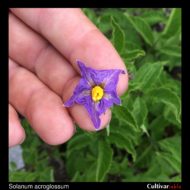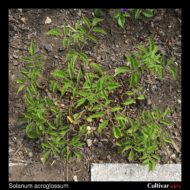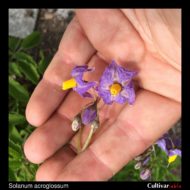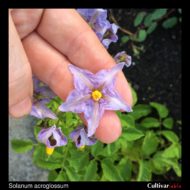Solanum acroglossum
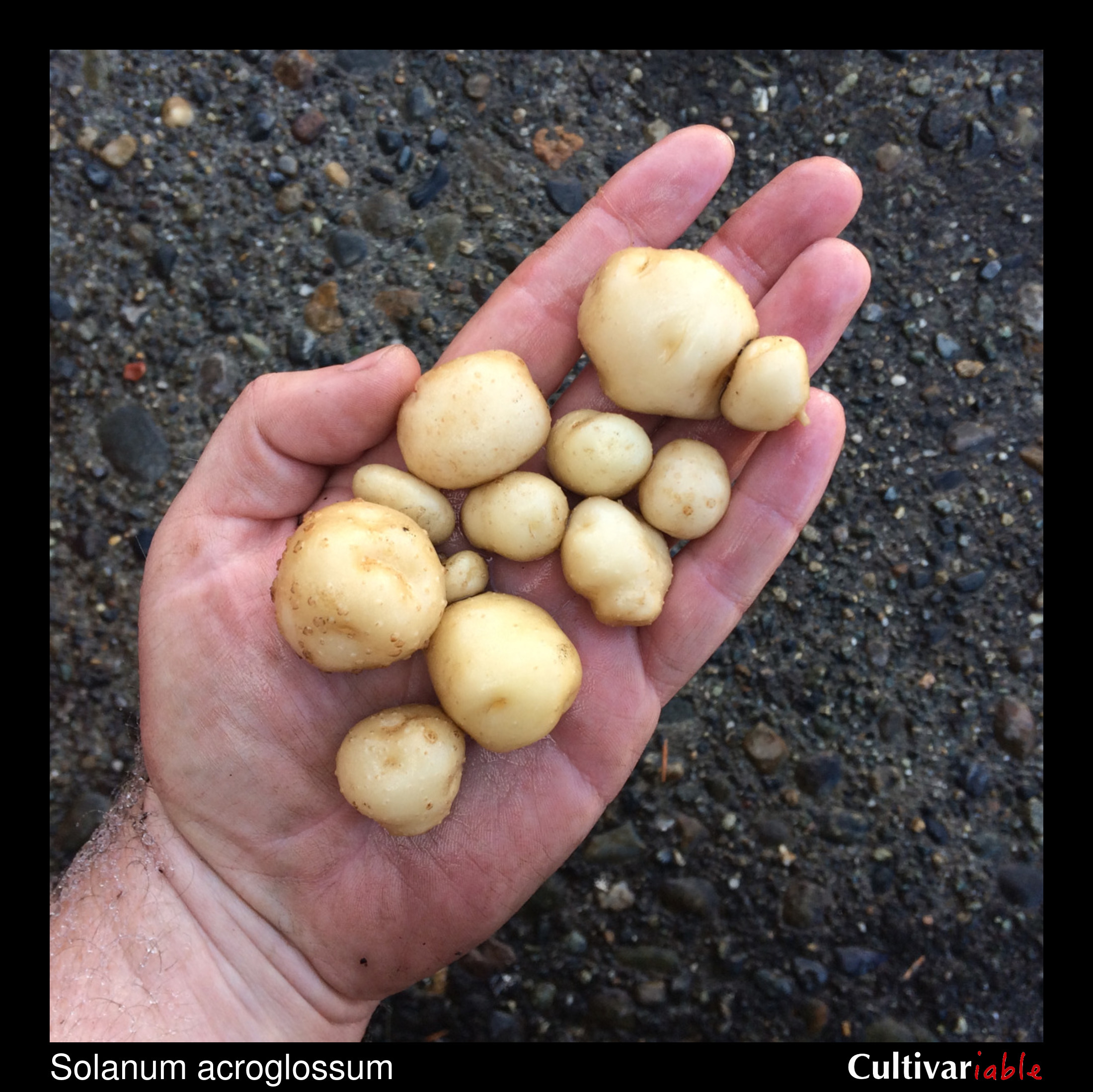
| Common Names | Papa de Amaa, Auqui Papa |
| Code | acg |
| Synonyms | |
| Clade | 3 |
| Series | Piurana |
| Ploidy | Diploid (2x) |
| EBN | 2 |
| Tuberization Photoperiod | Short Day |
| Self-compatibility | No |
| Nuclear Genome | P |
| Cytoplasmic Genome | W |
| Citation | Juzepczuk: Izv. Akad. Nauk SSSR, Ser. Biol. 2: 313. 1937. |
Description
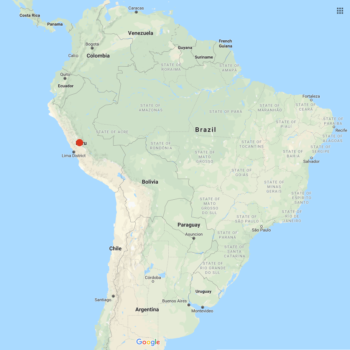
Solanum acroglossum is a wild potato species from Peru. Plants are generally a bit smaller than domesticated diploids, with sparser foliage. Tubers are very unusual, with alternating swellings and restrictions, like beads on a string (the technical term is moniliform). Flowers light blue. It is found at elevations from about 8,200 to 12,100 feet (2500 to 3700 meters) (Ochoa 2004).
The specific epithet, acroglossum, means something like “top-tongued” and probably refers to the leaflet arrangement. It is formed from the Latin prefix “acro,” for “high,” and the greek “glossa,” for “tongue.” While there is no completely standardized pronunciation for scientific names, the most common way to pronounce this species is probably so-LAY-num ACK-ro-gloss-um.
Resistances
This species can survive frosts down to 25 degrees F (-4 C) (Li 1977). Vega (1995) found that this species is less frost tolerant than domesticated potato.
This species appears to produce unique compounds that confer resistance to the Colorado potato beetle. S. acroglossum lacks the trichomes that are often associated with Colorado potato beetle resistance and also lacks high concentrations of glycoalkaloids, but contains hydroxycoumarines, a class of compounds that includes at least one isomer for which anti-larval activity has been noted (Tai 2014).
| Condition | Type | Level of Resistance | Source |
|---|---|---|---|
| Leptinotarsa decemlineata (Colorado Potato Beetle) | Invertebrate | Resistant | Pelletier 2007 |
| Phytophthora infestans (Late Blight) | Fungus | Somewhat Resistant | Ochoa 2004 |
Glykoalkaloid content
A spectrographic analysis of this species showed very low levels of solanine, chaconine, and a selection of lesser glycoalkaloids, including tomatines and demissines (Tai 2014).
Images
Cultivation
I have found Solanum acroglossum easy to germinate using the standard conditions for S. tuberosum.
Breeding
Crosses with S. tuberosum
Watanabe (1991) found that 3.6% (which was only 1 plant) of varieties of this species produced 2n pollen, which would be effectively tetraploid and 4EBN.
| Female | Male | Berry Set |
Seed Set | Germ | Ploidy | Source |
|---|---|---|---|---|---|---|
| S. tuberosum | S. acroglossum | None | None | Jackson (1999) | ||
Crosses with other species
Jackson (1999) found 1% 2n pollen in varieties of this species. Watanabe (1991) found that 1 of 28 plants tested (3.6%) produced 2n pollen.
| Female | Male | Berry Set |
Seed Set | Germ | Ploidy | Source |
|---|---|---|---|---|---|---|
| S. acroglossum | S. candolleanum (as S. ambosinum) | Low | High | Ochoa (2004) | ||
| S. acroglossum | S. chiquidenum | Low | Moderate | Ochoa (2004) | ||
| S. acroglossum | S. chomatophilum | Moderate | Low | Ochoa (2004) | ||
| S. candolleanum (as S. ambosinum) | S. acroglossum | None | None | Ochoa (2004) | ||
| S. chiquidenum | S. acroglossum | Moderate | None | Ochoa (2004) |
References
Solanum acroglossum at Solanaceae Source

